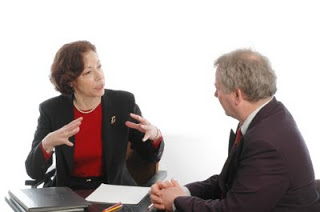It was the spring of my junior year in high school, and I was sitting in English class. One of the student aides from the principal’s office came to the door and asked the teacher if I could be excused.
When I got out in the hall with her, she simply said that the principal wanted to see me. She couldn’t tell me why.
Immediately, a feeling of guilt washed over me. What had I done? What was I in trouble for?
My heart was racing, and my hands were sweating as we walked silently to the office. I’d never been summoned to the principal’s office before. What was going on?
When I entered his office, I was shaking inside and hoped he couldn’t detect how nervous I was.
He looked at me and then came around from behind his desk. He wasn’t frowning, but he wasn’t smiling either. I still had no clue about why I was there.
Then he broke into a big grin and said, “Congratulations. You’re one of three girls in your class of 550 who’s been selected to attend Girls State this summer.”
I was floored. It took me a few minutes to recover.
When you expect bad news and hear something positive instead, your thoughts and emotions have to switch gears. The adrenaline rushing through my body had been preparing for flight or fight, not celebration. I nearly cried from relief.
I wasn’t in trouble after all!
I didn’t hear the next words he spoke as my mind processed his initial pronouncement. I didn’t even know what Girls State was at that moment. But I understood it was an honor and not a punishment.
It’s interesting that the day I learned of my selection is etched so powerfully in my memory.
Why that incident stands out
Our brains retain vivid memories of events that carry strong emotions with them, and the anticipation of meeting with the principal was one of those times for me.
Years later, I’m still processing the lessons from that experience because there are still too many occasions when my first response to a situation is GUILT. Even when I haven’t done anything to feel guilty about!
I could endlessly analyze the reasons why this happens, but that kind of examination of the past is not a productive use of my thinking, my energy or my time.
Instead, I needed to devise some ways to stop the automatic “guilt” response while still taking responsibility for what I say and do.
How to avoid the guilt trip
If you tend to suffer from excessive feelings of guilt or shame, ask yourself these questions to remove the emotion and take a more logical approach:
- What has just happened? What are the facts?
- Have I said or done anything to feel guilty about?
- What is the appropriate (emotionally healthy) response in this situation?
A realistic assessment of your own role is vital in determining what you should do next.
If you do have a reason to feel guilty, figure out who was affected by your behavior. Then quickly approach the person(s) involved and make amends. Do what you can to set things right so you regain their trust and confidence…AND keep your self-respect and self-image intact.
If you haven’t done anything wrong, then don’t allow anyone (including yourself) to make you feel guilty. Affirm your strengths and what you’ve done well under the circumstances. It also helps to take several deep breaths to let go of the negative feelings.
The real key is to develop greater self-awareness so you immediately sense when you’re experiencing negative emotions like guilt or shame. If you don’t recognize them, you won’t be able to do anything about them.






